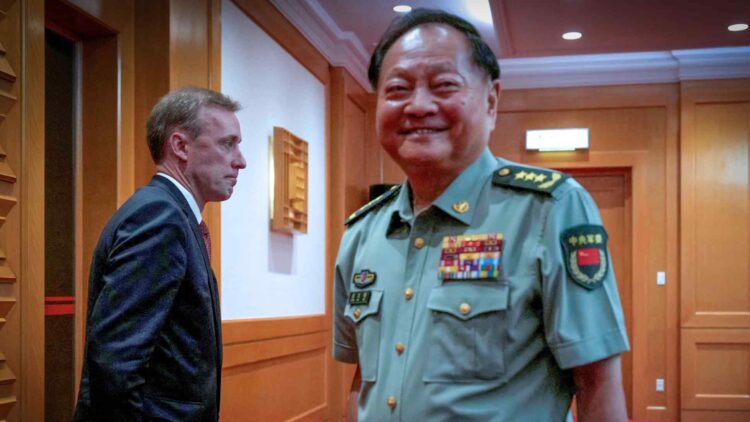During a recent meeting between U.S. national security adviser Jake Sullivan and General Zhang Youxia, one of China’s top military leaders, Zhang’s unusually broad smile caught the attention of many. This seemingly simple gesture hints at deeper changes in both China’s military diplomacy and its internal political landscape.
The meeting, marking the first substantial dialogue between top Chinese military officials and a U.S. national security adviser in eight years, represents a shift. China has typically relegated defense ministers to such talks, but the re-engagement of higher-ranking officials like Zhang signals a more serious approach to military diplomacy. Zhang’s smile could be seen as more than a gesture of goodwill to the U.S.—it may be a strategic move to reassert his position and influence within China’s political sphere.
The fact that Zhang, a trusted figure with strong ties to Chinese President Xi Jinping, was chosen for this meeting indicates a possible recalibration of power dynamics within China’s top military ranks. His prominent role, despite recent political purges and corruption investigations, underscores the enduring influence of “second-generation reds” like Zhang in the country’s leadership structure.
Zhang’s smile, in essence, was not just for the cameras. It symbolized his comeback and hinted at broader shifts in China’s power balance, both on the international stage and within its domestic politics.

